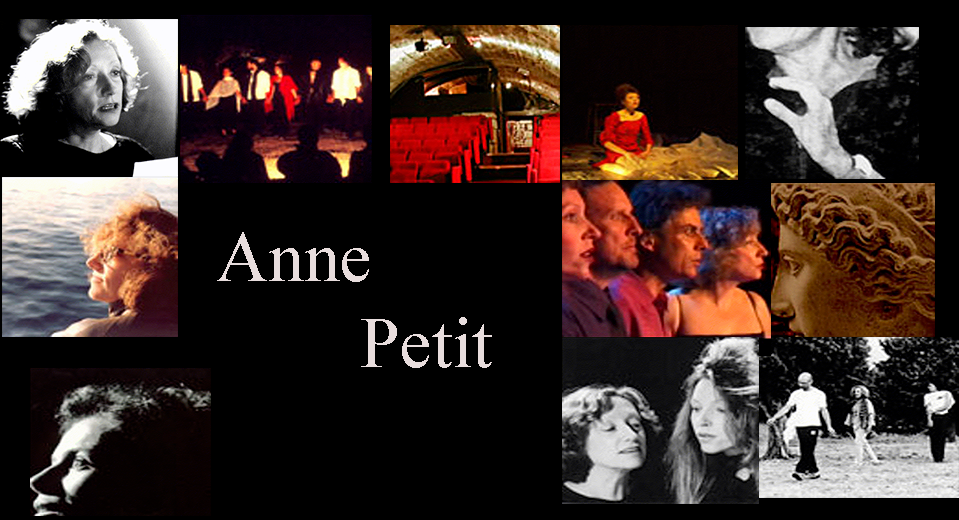
|
|
|
ANTIGONE BY SOPHOCLES TRANSLATED BY JEAN AND MAYOTTE BOLLACK |
|
|
|
| |
|
|
| |
"You're gone to the extreme edge of daring...
You pay to the dregs a real fight led by your father"
(Chorus, Kommos)
|
|
| |
|
|
|
| |
|
|
| |
Antigone – Creon - A killing
One knows, the other doesn't... Antigone chose before the start of the tragedy… As for Creon, he will go past the doors leading to total annihilation, to a disaster, without seeing them.
Creon wants to strike hard to establish peace and assert his power over Thebes, after a fratricidal civil war and... Over what is left of much-venerated Oedipus's family, i.e. over his two daughters Antigone and Ismene – all the more since Antigone is to get married to his son Haemon. The ban on burying Polynices's body – under threat of death – is a provocation in the eyes of Oedipus's daughters, Antigone will answer it beyond anything he could have imagined, coming from a woman. Antigone will choose to be faithful to her family line, thus death rather than marriage with Haemon. A death whose impact will be all the more powerful as she will stage it practically.
Some people say that Sophocles invented dialogue and that his tragedies are representative of the Athenian democracy because of the debate they bring up: conflict cannot be conceived without criticising the triumphant principle…
Antigone defends blood bonds (her clan) against the laws of the City, the laws of the gods against the laws of men. This position can only lead us to ask ourselves… the rebel's move… but for what values?
Creon plays the City's laws against those of the gods, the King of Thebes calls out to the gods... a transgression… a subversion..?
The Chorus is counting points… Coryphaeus and the Chorus have the mission, the task of tempering down the characters' excesses, of protecting the City against any transgression of divine or human laws. The stakes are high, but cautious…the Chorus expresses itself as a rebus, its language is mostly enigmatic and cultivates a certain art of ambiguity, the art of those who know how to remain in place after the storm… |
|
| |
|
|
|
|
|
|
| |
|
|
| |
There is a telluric force of antagonisms in ancient tragedy. There's something rough, something dense, something essential and necessary that is to be shared with the audience in the tragic confrontation. Hence the necessity for a theatrical code to invent, to build. As far as I am concerned, everything revolves around matter. Firstly the word matter. The work I have been doing for several years drove me to what I would almost call attacking – because the language is so dense – the word matter, kneading it in all the breathings, vibrations, resonances of its uttering, even going up to singing (exodos). The surpassing of oneself which this mode of expression implies is, to me, one of the unavoidable dimensions of tragedy.
The show becomes incarnated in the confrontation of different elements: from the text's rockery in Jean and Mayotte Bollack's translation to the transcendence of singing, from the strategy of the Chorus's positions (treated like a single character, like a multiple-headed hydra, like an orchestra: several instruments, a single movement) which, in turn careful, sadistic, shaken, accusing, indifferent, can clasp, watch out, surround, stare, trap or isolate the characters in a battle space bordered by light, to the fluidity of modern costumes which get deployed in large movements, from the gaze's intensity to the make-up's copper reflections, like remote reminiscences of ancient masks...
Anne Petit
Antigone Sophocles translated by Jean and Mayotte Bollack is published by Editions de Minuit
|
|
| |
|
|
|
| |
|
|
|
| |
Direction Anne Petit, assistant Eric Ginestet. With : Florence Bermond (Antigone), Bruno Cadillon(Créon), Natalia Cellier (Ismène / le Chœur), Pierre-Michel Dudan(le Garde / le Chœur), Nicole Gros (le Coryphée), Corinne Paccioni(Eurydice / le Chœur),Patrick Séguillon / Bruno Boulzaguet (Tirésias), Patrick Séguillon / Tuuka Vasama (le Messager), Tazio Torrini (Hémon / le Chœur) et Guillaume Alexandre-Brault, Cécile Cadoux, Eric Ginestet, Katialyne Leprévost, Paolo Pilosio, Tuuka Vasama, Vanina Suavet (le Chœur), Timon Renucci / Ulysse Renucci (the child). Costumes Anne-Marie Underdown , Erig Legoff, make up Solange Bovineau, lighting Robert Labar, musical composition by Nando Acquaviva, polyphonic singing, Santu Massiani, Nando Acquaviva, Noël Pardini. |
|
|
| |
|
|
|
| |
|
|
|
| |
|
|
|
|
| |
|
|
| |
First produced on August 4, 2001 in a field burnt by the sun, in front of the mountain, by juniper trees ... in the 4th Rencontres de Théâtre directed by Robin Renucci in Corsica (ARIA) including workshops and performances
|
 |
| |
|
|
|
|
|
 |
|
|